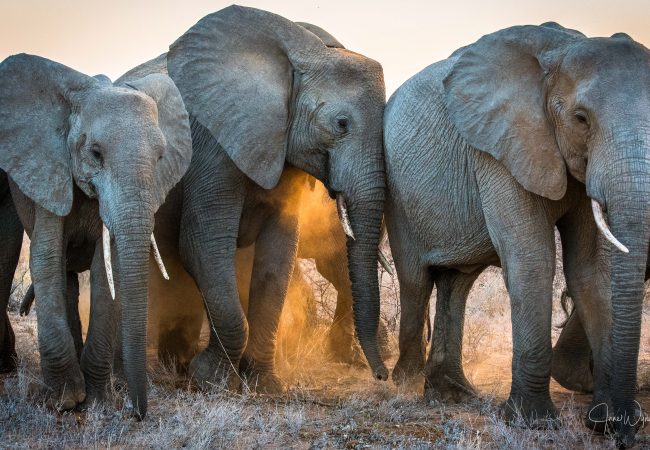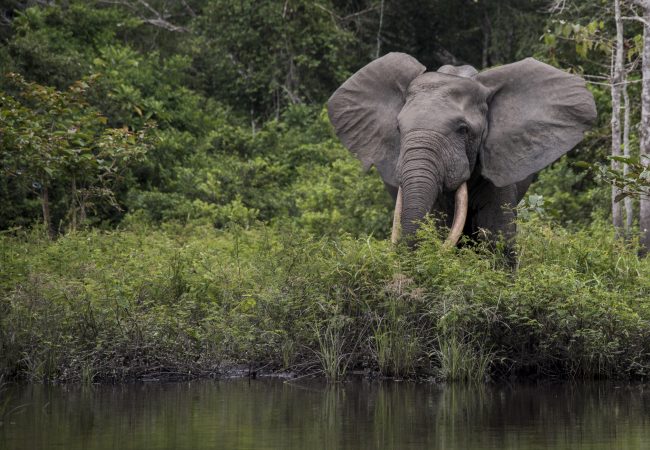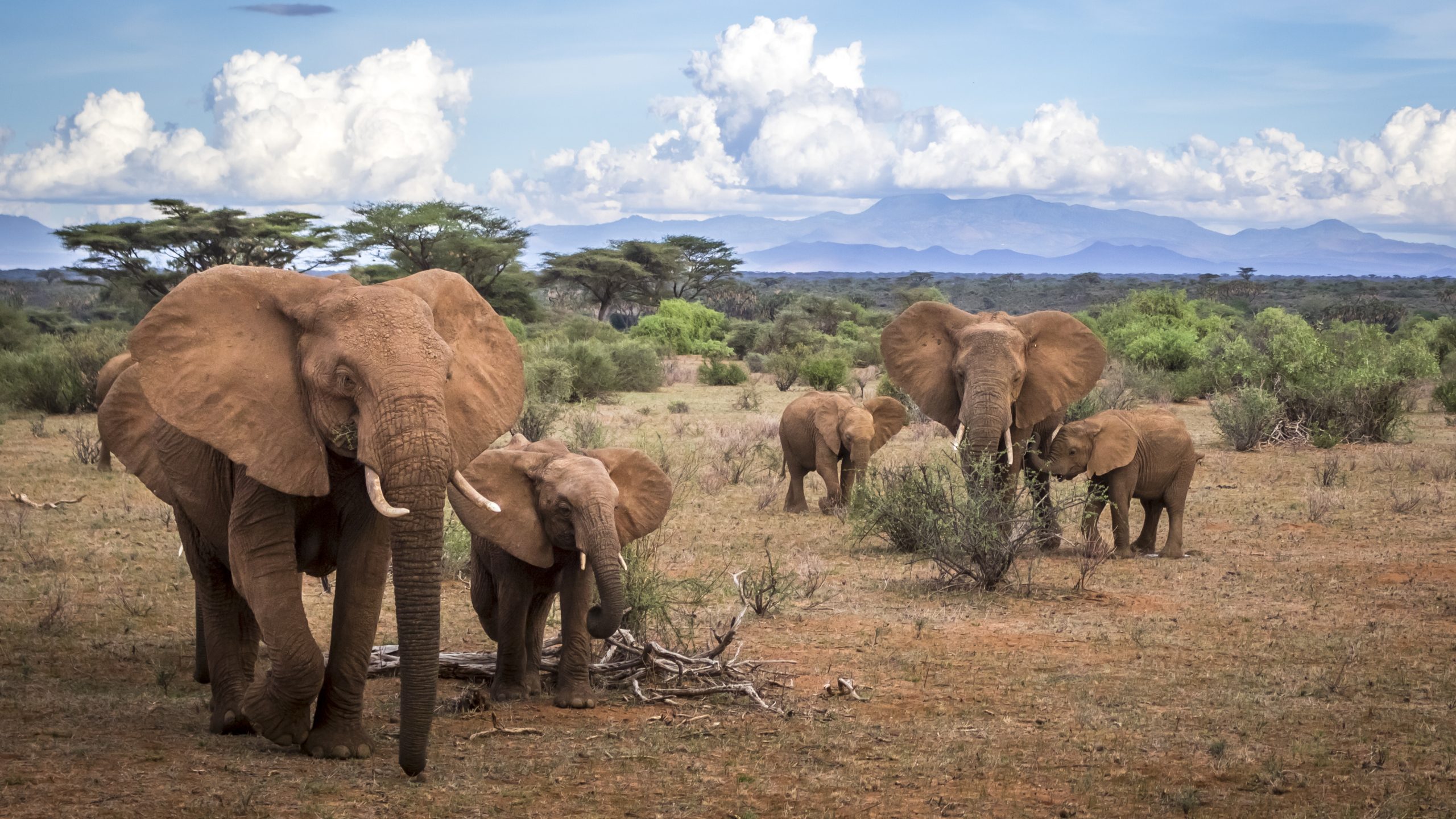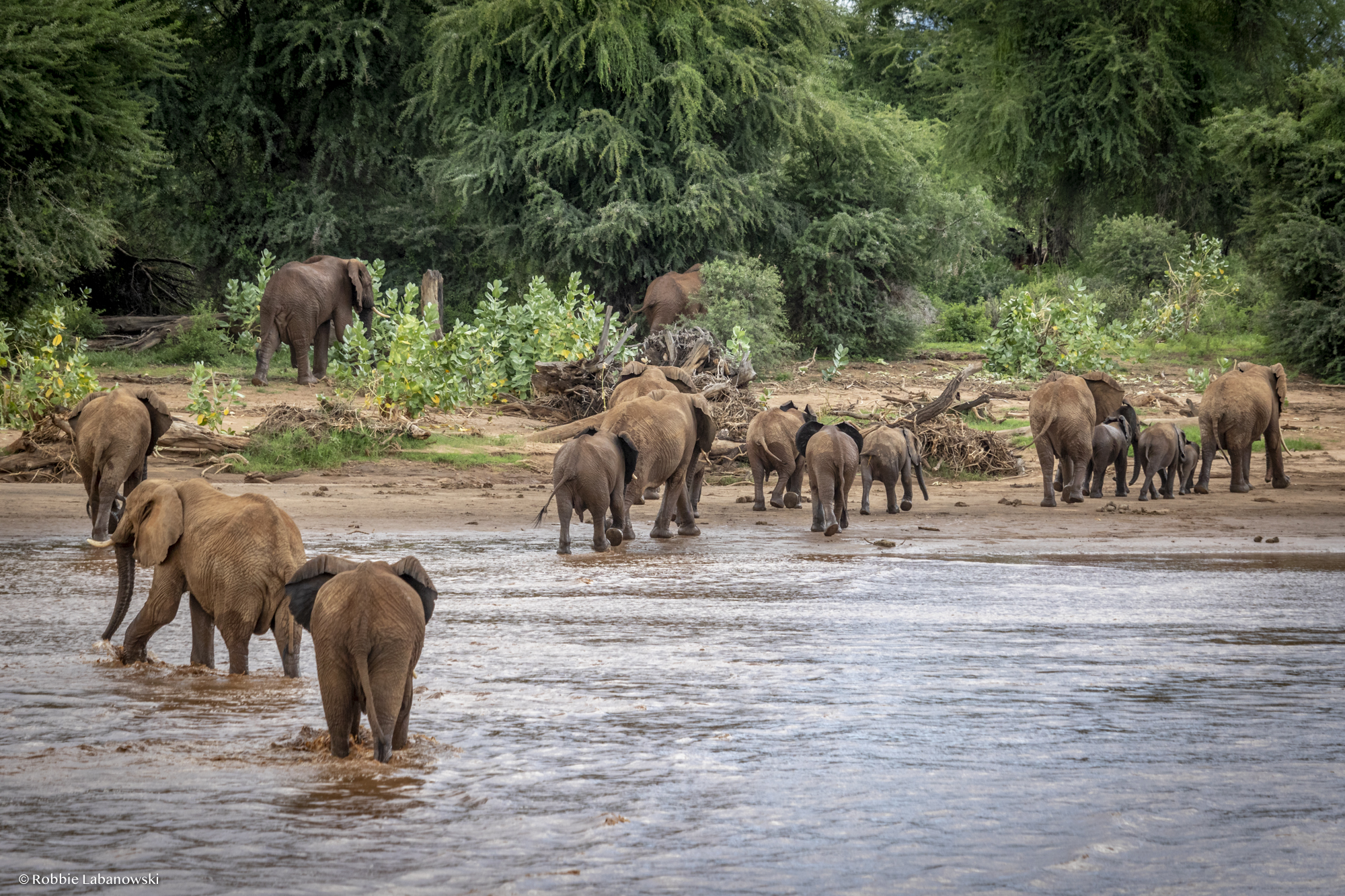African elephants are the largest land animals on Earth. They are slightly larger than their Asian cousins and can be identified by their larger ears that look somewhat like the continent of Africa (Asian elephants have smaller, rounded ears).
 © Jane Wynyard
© Jane Wynyard
Although they were long grouped together as one species, scientists have determined that there are actually two species of African elephants—and that both are at risk of extinction. Savanna elephants are larger animals that roam the plains of sub-Saharan Africa, while forest elephants are smaller animals that live in the forests of Central and West Africa. The International Union for the Conservation of Nature lists savanna elephants as endangered and forest elephants as critically endangered.
 © Frank af Petersens
© Frank af Petersens



